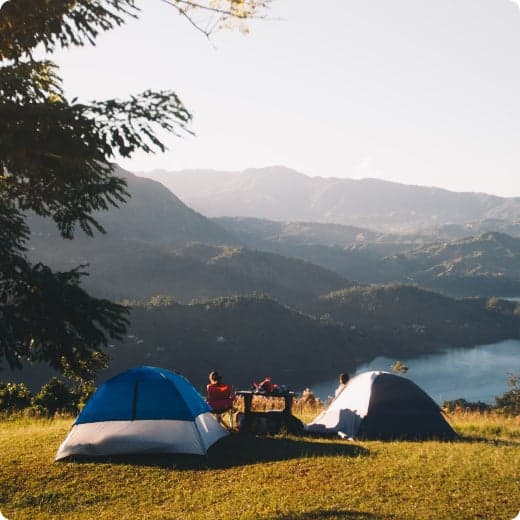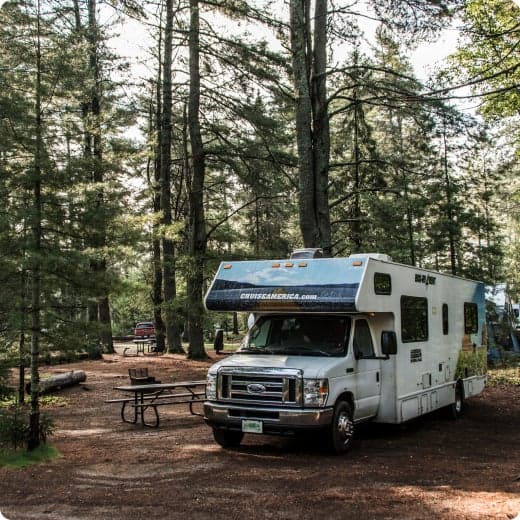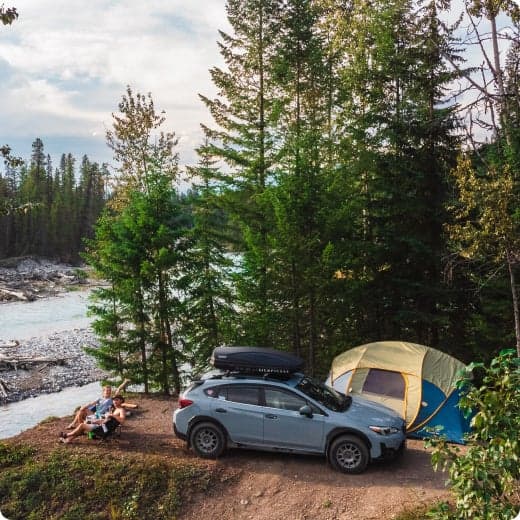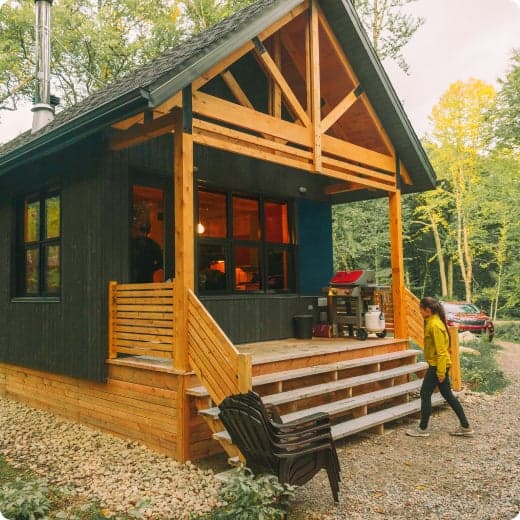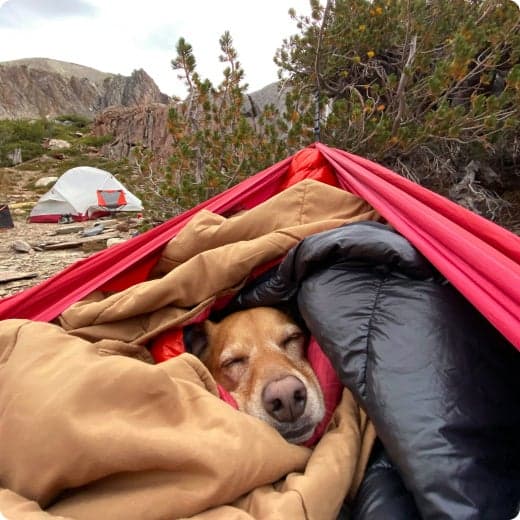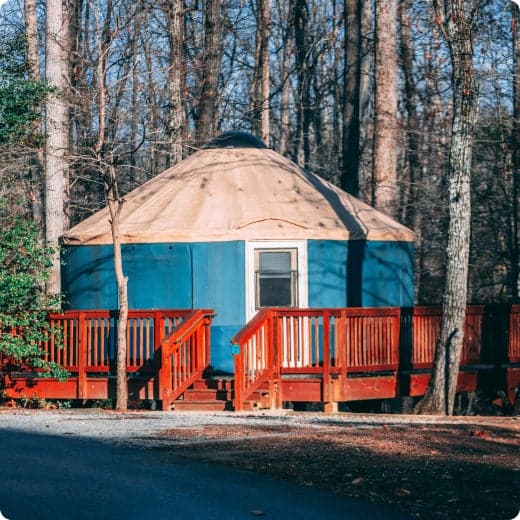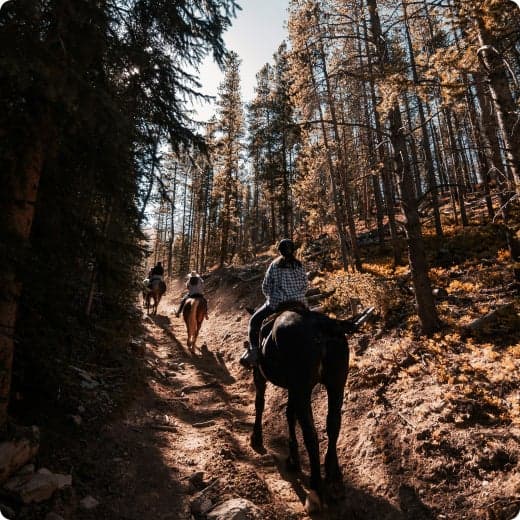Overview
The Pocket Recreation Area is located within the Chattahoochee-Oconee National Forest in the ridges and valleys of northwest Georgia. The campground sits in a low lying geographical area between Horn and Mill mountains. This low lying area was formed by limestone dissolving, leaving the ridges above and valleys below. These ridges are rich in iron ore "pockets" giving this area its name. Deer and turkeys thrive in the surrounding forest. Spring wildflowers and autumn colors abound, showcasing the beauty of the region. Nearby trails and overlooks allow visitors to enjoy the National Forest from different perspectives.__ The Pocket area is rich in cultural and historical history. In the mid-1800s until the Great Depression in the 1930s, this area consisted of two communities, Pocket and Zone. These communities consisted of farms, churches, home places, a grist mill, a saw mill, and a general store. Between 1938 and 1942, the Pocket Recreation Area was the site of a thriving Civilian Conservation Corps (CCC) work camp for Company 3435. The men of the CCC, under the guidance of the U.S. Forest Service, had a tremendous impact on the area. They were involved in building roads, bridges, erosion control, tree planting, fighting wildfires, and the construction of recreation sites. The CCC played an instrumental part in helping local farmers with erosion control and road maintenance. Remnants of the camp can be found throughout the Pocket Recreation Area. These remnants include foundations for buildings, drainage trenches, retaining walls, and spring box in the picnic area.__ Activities in the Pocket Recreation Area include camping, picnicking, hiking, and trout fishing in nearby Johns Creek.
Recreation
The Pocket Campground is a quiet campground which not only serves as a place to rest and relax by the campfire, but serves as a base camp for activities located within other parts of the National Forest.__ Adjacent to the campground is the Pocket Picnic Area, complete with tables, grills, a reservable picnic shelter, and a vault toilet. The trail heads for the Pocket Loop Trail and Pocket Interpretive Trail are located in the picnic area. A Civilian Conservation Corps spring box is located in the creek, releasing cold water from deep below the surface. This is a great place to wade and cool off during long summer days.__ Hiking the 1.5 mile Pocket Interpretive Trail contains signs to provide an educational walk through multiple types of habitat where an array of wildlife and plant species can be found. The 2.5 mile Pocket Loop Trail provides a similar, but longer experience, sharing some of the same tread with the interpretive trail.__ Trout fishing in Johns Creek (less than a mile away) is a great place to wet a line and fill one's creel. Georgia DNR fishing regulations apply.
Facilities
The Pocket Campground is a quiet campground which not only serves as a place to rest and relax by the campfire, but serves as a base camp for activities located within other parts of the National Forest.__ Adjacent to the campground is the Pocket Picnic Area, complete with tables, grills, a reservable picnic shelter, and a vault toilet. The trail heads for the Pocket Loop Trail and Pocket Interpretive Trail are located in the picnic area. A Civilian Conservation Corps spring box is located in the creek, releasing cold water from deep below the surface. This is a great place to wade and cool off during long summer days.__ Hiking the 1.5 mile Pocket Interpretive Trail contains signs to provide an educational walk through multiple types of habitat where an array of wildlife and plant species can be found. The 2.5 mile Pocket Loop Trail provides a similar, but longer experience, sharing some of the same tread with the interpretive trail.__ Trout fishing in Johns Creek (less than a mile away) is a great place to wet a line and fill one's creel. Georgia DNR fishing regulations apply.
Natural Features
Surrounded by the horseshoe ridges formed by Horn and Mill Mountains, the Pocket Campground is located in a geographical region known as the Ridge and Valley Province of Northwest Georgia, part of the Southern Appalachian Mountains. This region consists of long narrow ridges, sweeping valleys, creeks, streams, ponds, and waterfalls.__ A small creek, locally known as Spring Branch (a tributary to nearby Johns Creek) meanders through the recreation area, providing a cool relief in the summer months. An informational interpretive loop trail and the Pocket Loop Trail leads visitors through a mixed pine/oak forest, past a small wildlife pond, and near wildlife food plots. This variety of natural features provides habitat for deer, turkeys, a multitude of song birds, and aquatic life, such as amphibians and beavers.__ The Johns Mountain Overlook and the Keown Falls Picnic Area are found nearby. These two beautiful recreation sites showcase the natural features of the surrounding region.
Nearby Attractions
Johns Creek Trout Fishing Area: A great place to go trout fishing managed by the U.S. Forest Service and GA DNR with the help of Trout Unlimited. Leaving the campground, turn left onto Pocket Road. After 1/4 mile stay right at the Y. After 1 mile look for legal pull-offs for fishing access. (Georgia DNR fishing regulations apply).__ Johns Mountain Overlook: A U.S. Forest Service overlook where visitors can view the Armuchee Valley and distant Taylor's Ridge. Leaving the campground, turn right onto Pocket Road. After 3 miles turn left at the Johns Mountain Overlook entrance sign (Forest Service Road 208). Follow FSR 208 for 2 miles to the overlook.____ Keown Falls Picnic Area and Trailhead: A beautiful place to picnic with a loop hike to Keown Falls. Best seen after rain. Leaving the campground, turn right onto Pocket Road. After 2 miles turn left at the Keown Falls Trailhead entrance sign (Forest Service Road 702). Follow FSR 702 for half a mile. The Keown Falls trail is a 3 mile loop trail. The falls are about 1 miles when following the trail counter clockwise.__ Chestnut Mountain Shooting Range (Fee Area, see Recreation.gov page Chestnut Mountain Shooting Range): A U.S. Forest Service shooting range to hone your shooting skills. You must provide your own firearm, ammunition, and targets.____ Leaving the campground, turn right onto Pocket Road. After 4.6 miles turn right onto Furnace Creek Road. After 2 miles on Furnace Creek Road, turn right onto GA-136. Follow GA-136 for 5.7 miles. Turn left at the Chestnut Mountain Shooting Range entrance sign (Forest Service Road 212). Follow FSR 212 for a half mile.______ Houston Valley OHV Area (Fee Area, see Recreation.gov page Houston Valley OHV Area): A U.S. Forest Service ATV trail system. This is a designated area with 25 miles of various levels of trails where visitors can legally ride dirt bikes and ATVs (under 50 inches). On the Chattahoochee-Oconee National Forest ATVs and dirt bikes are limited to designated OHV trails and not allowed to be driven on roads designated as Forest Service Roads (National Forest Roads ARE NOT part of the county road system). Visitors must provide their own vehicles at this facility. Leaving the campground, turn right onto Pocket Road. Follow Pocket Road for 7.3 miles then turn left onto GA-136. After 1/10th of a mile turn right onto GA-201. Follow GA-201 for approximately 5.5 miles and veer left onto Old Ringgold Road. After approximately 5 miles turn left onto Houston Valley Road. After 2 miles turn onto Capehart Road. Follow Capehart Road into the Houston Valley OHV parking lot.





























































